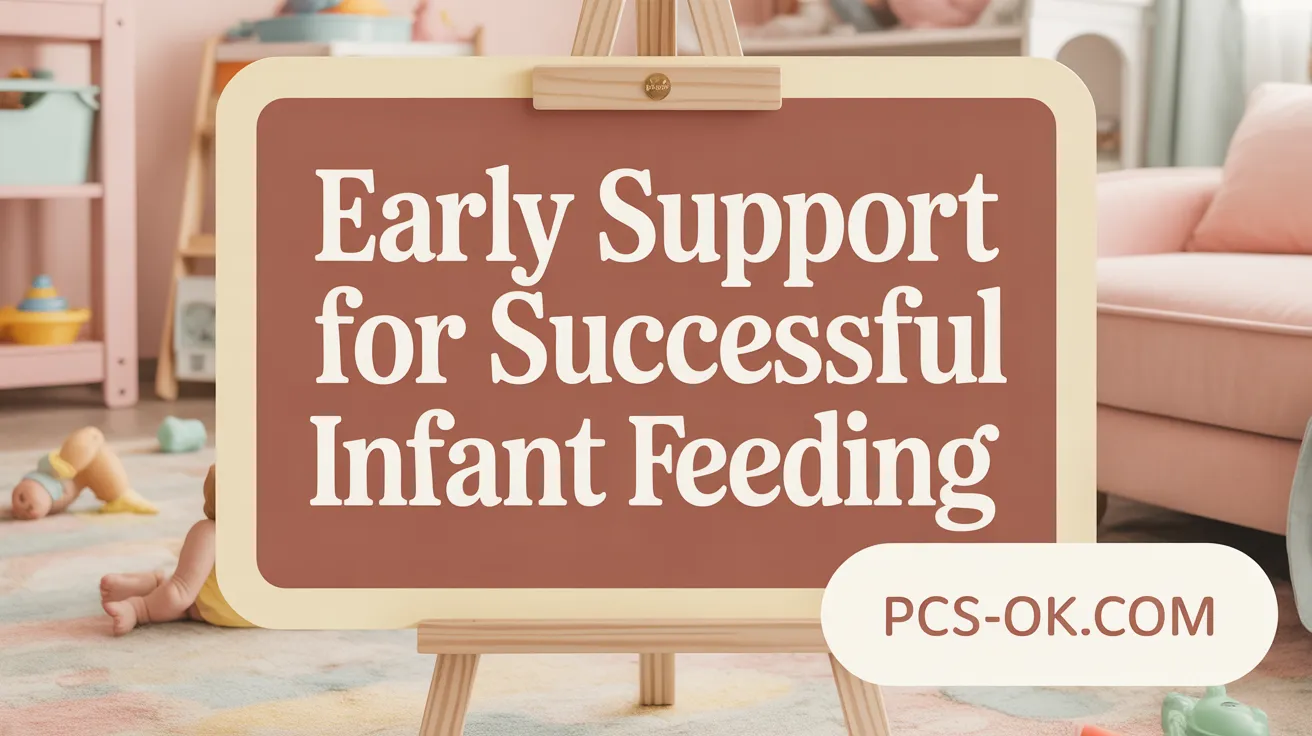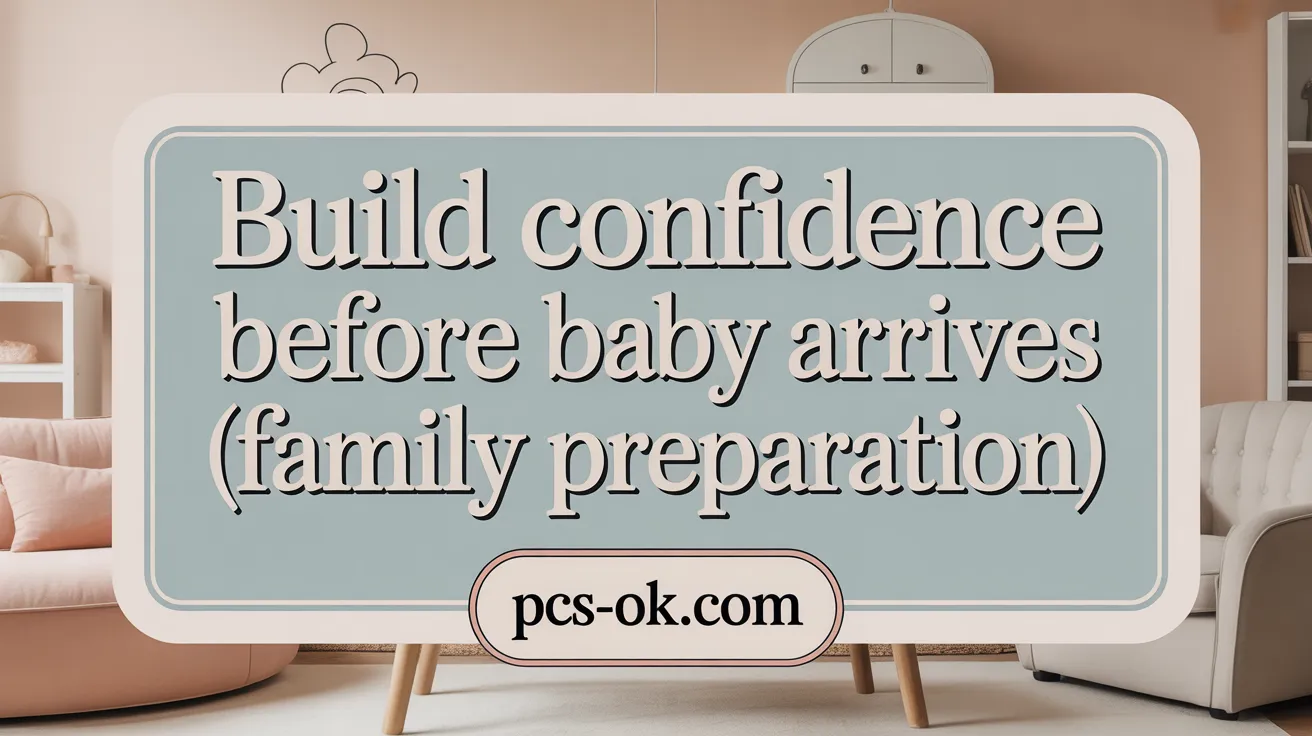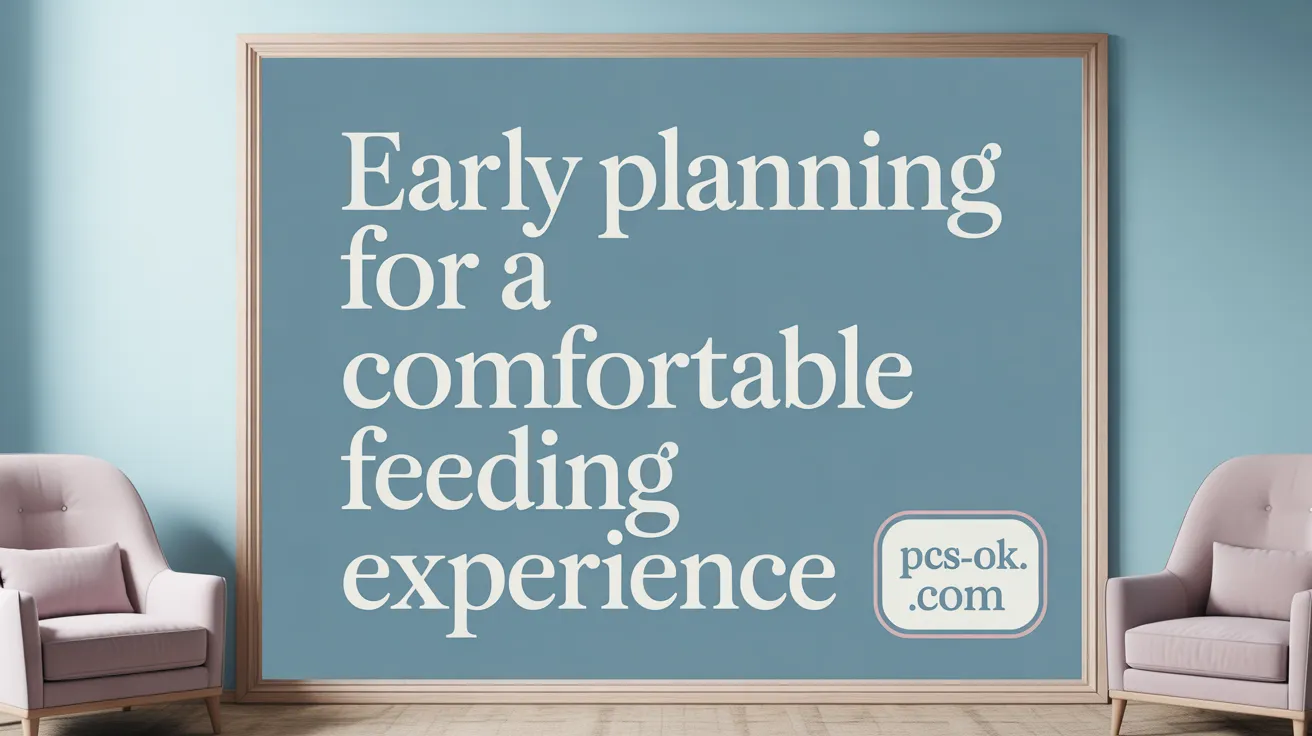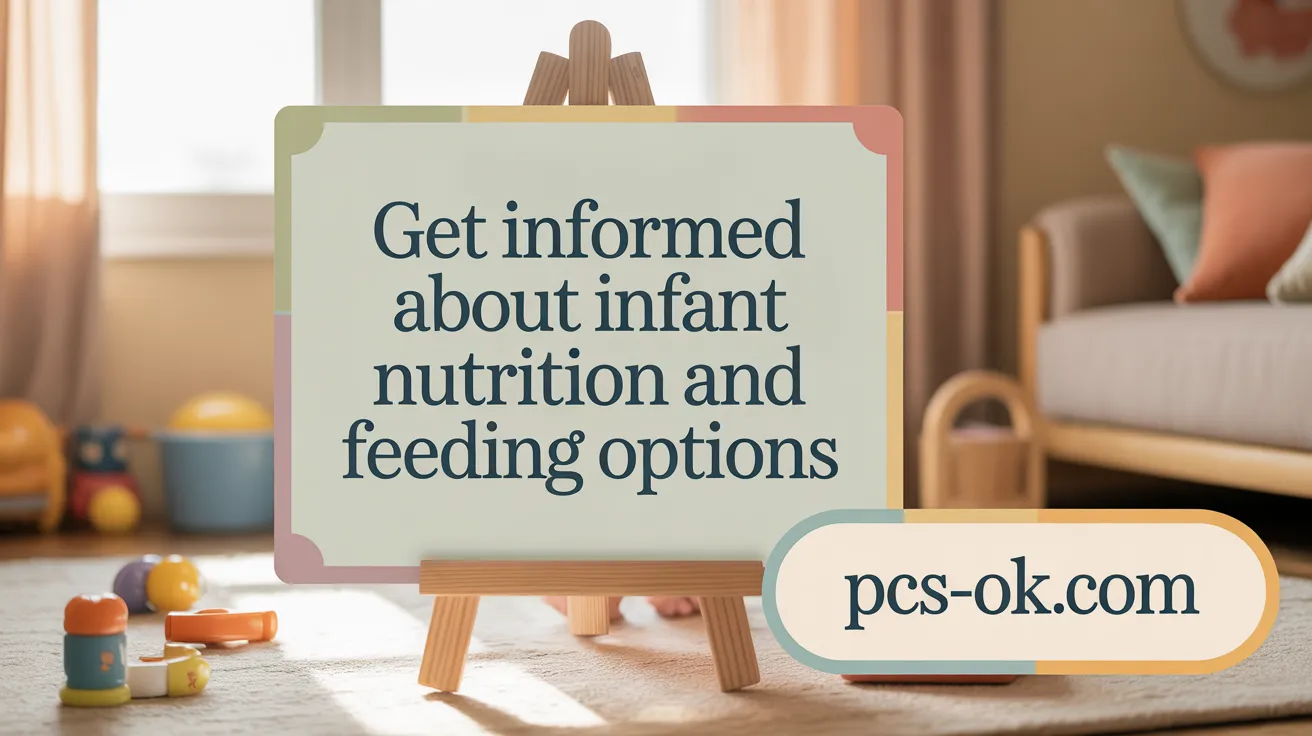Prenatal Feeding Consultations for Expecting Parents
Why Prenatal Feeding Consultations Matter
Prenatal feeding consultations offer expectant parents an invaluable opportunity to prepare for feeding their newborns, whether they choose breastfeeding, formula feeding, or a combination. These sessions provide personalized education, emotional support, and practical tools to navigate the early days and weeks of infant feeding with confidence and success. As a cornerstone of prenatal care, they empower families by addressing concerns, debunking myths, and setting realistic expectations to foster positive health outcomes for both mother and child.
Understanding the Purpose and Importance of Prenatal Feeding Consultations

What is the purpose and importance of prenatal feeding consultations for expectant parents?
Prenatal feeding consultations play a critical role in preparing expectant parents for successful infant feeding, whether through breastfeeding or formula feeding. These sessions, often led by International Board-Certified Lactation Consultants (IBCLCs), offer personalized education tailored to each family’s needs. During consultations, parents learn about proper latch techniques, feeding positions, and infant cues that indicate hunger.
Identifying potential challenges early is another crucial aspect. For example, assessments might reveal anatomical issues like flat or inverted nipples that could affect breastfeeding. Addressing these concerns proactively helps parents develop effective strategies and set realistic expectations.
Creating a supportive environment where parents feel comfortable discussing their worries is vital. These consultations also involve partners, emphasizing their role in encouragement and practical support postpartum. Guidance on pumping, milk storage, and establishing routines ensures that families are well-equipped.
Overall, prenatal feeding consultations improve maternal confidence, reduce anxiety, and promote healthier feeding practices. Such preparation enhances the likelihood of breastfeeding success, which benefits infants through improved nutrition and immunity, and supports mothers’ long-term health.
What to Expect During Prenatal Feeding Consultations

Typical content and structure of a prenatal consultation
A prenatal feeding consultation usually involves a detailed, personalized session with a trained International Board-Certified Lactation Consultant (IBCLC). During this appointment, parents learn about breastfeeding basics, including how to latch the baby correctly, different feeding positions, and how to recognize infant feeding cues. The consultation is structured to provide practical skills and address individual concerns, ensuring parents feel prepared for postpartum breastfeeding.
Educational focus areas: latch, positioning, infant cues
One of the primary focuses of the consultation is teaching optimal latch techniques and various feeding positions to reduce discomfort and promote effective milk transfer. Parents are educated on how to identify feeding cues such as rooting, lip-smacking, and fussiness, which signal that the infant is hungry. Understanding these cues helps establish successful feeding routines early on, making the experience more comfortable for both mother and baby.
Breast anatomy assessments and potential challenges
The consultant assesses the mother’s breast anatomy to identify possible challenges like flat or inverted nipples. Addressing these concerns can include coaching on hand expression, nipple exercises, or use of pumps. Identifying potential issues beforehand helps develop strategies and solutions to overcome common breastfeeding barriers, leading to more confidence and better outcomes.
Involvement of partners
Partners are encouraged to participate actively during the consultation to understand how they can support breastfeeding. They learn about comforting the mother, assisting with positions or pumping routines, and offering emotional support. This involvement fosters a team approach, which research shows improves breastfeeding success and enhances family bonding.
Development of personalized feeding plans
A key part of the consultation is creating a tailored feeding plan based on the couple’s needs, preferences, and possible challenges. This plan includes guidance on feeding schedules, pumping routines, milk storage tips, and troubleshooting common problems like latch or supply issues. Customizing these plans helps ensure parents feel equipped and confident in their postpartum feeding journey.
Emotional support and creating a safe discussion environment
Creating a supportive, judgment-free environment is essential. Expectant parents can express concerns about challenges or medical issues openly, knowing their questions are valid and will be addressed with empathy. Emotional support from IBCLCs and other professionals helps reduce anxiety and builds confidence, setting a positive tone for breastfeeding after birth.
Additional Resources and Considerations
In addition to in-person consultations, many programs offer virtual support, community groups, and resources from organizations like La Leche League or hospital-based initiatives. These resources provide ongoing help and reassurance, emphasizing that breastfeeding success often benefits from continuous, proactive support.
| Aspect | Details | Additional Notes |
|---|---|---|
| Consultation Focus | Latch, positioning, infant cues | Personalized, evidence-based guidance |
| Anatomy Assessment | Flat/inverted nipples, potential challenges | Solutions like pump use or nipple exercises |
| Partner Involvement | Education on support roles | Improves breastfeeding outcomes |
| Planning | Feeding schedule, milk storage | Tailored to family needs |
| Emotional Environment | Safe, supportive discussions | Reduces anxiety, boosts confidence |
| Resources | Community groups, virtual support | Enhances ongoing assistance |
The Benefits of Prenatal Feeding Consultations for Breastfeeding Success

Confidence building before birth
Prenatal feeding consultations with lactation professionals help expectant parents gain vital knowledge and skills before their baby arrives. These sessions teach the basics of breastfeeding, such as proper latch techniques, effective feeding positions, and how to recognize infant hunger cues. By practicing these skills beforehand, parents often feel more confident and less anxious about feeding their newborn.
Early identification and management of challenges
During consultations, IBCLCs can assess factors like nipple shape and anatomical considerations that might pose challenges later. Early detection of potential issues, such as flat or inverted nipples, allows for planning interventions to overcome these hurdles. Addressing problems proactively increases the likelihood of successful breastfeeding.
Techniques and strategies for feeding
Parents learn effective techniques to establish and maintain a good milk supply. Guidance includes troubleshooting common problems, managing cluster feeding, and knowing when the baby is receiving enough milk through monitoring pee and poop or observing feeding cues. These strategies prepare parents for the realities of early breastfeeding.
Preparation for pumping and milk storage
In addition to feeding techniques, consultations cover how to efficiently use breast pumps, manage express milk, and safely store milk. Such preparation is crucial if parents plan to combine breastfeeding with pumping or need to attend to other commitments.
Reducing parental stress
By offering reliable information and reassurance, prenatal consultations help reduce anxiety around infant feeding. Feeling prepared and supported fosters a positive mindset, which benefits both parent and baby. Partners are encouraged to participate, further strengthening support systems.
Linking families to postpartum support networks
Consultations connect families with community resources such as breastfeeding support groups, hospital programs like the Baby-Friendly Initiative, and virtual help options. These ongoing supports enhance the transition into parenthood, fostering a confidence that continues well beyond birth.
| Benefits of Prenatal Feeding Consultations | Details | Additional Resources |
|---|---|---|
| Confidence building | Teaches skills, instills trust in abilities | La Leche League, Kellymom |
| Early challenge identification | Detects anatomical or supply issues early | IBCLC, prenatal classes |
| Practical feeding techniques | Hands-on advice for latch, positioning, cues | Hospital lactation services |
| Pumping and storage | Prepares for expressing milk and storage routines | CDC guidelines, WIC support |
| Reduces stress | Provides reassurance and realistic expectations | Support groups, counseling |
| Postpartum support links | Connects families to ongoing resources | Community groups, virtual support |
Accessing Prenatal Feeding Consultations and Available Support Resources

Expectant parents looking to prepare for breastfeeding can find a variety of prenatal feeding consultation services offered by healthcare providers, hospitals, and specialized lactation consultants. Typically, these sessions are scheduled during the second or early third trimester, especially when there are concerns about special needs or NICU admissions. These consultations, often lasting around one hour, provide personalized guidance from International Board-Certified Lactation Consultants (IBCLCs), focusing on breastfeeding techniques, positions, latch, and troubleshooting common issues.
Consultations can be attended in several formats to suit family needs. Many providers offer in-person visits, virtual sessions via video calls, or even in-home consultations for added comfort. This flexibility ensures that parents can access support regardless of location or circumstances. The cost for these services generally averages about $150, but many insurance plans, including Medicaid, may cover some or all of the expenses. Some hospitals and clinics also provide free or low-cost consultations as part of preventive care programs.
Parents are encouraged to gather contact information for prenatal lactation support early, enabling them to reach out promptly after birth for continued assistance. These services often include follow-up support, educational resources, and ongoing consultation options to help ensure successful breastfeeding.
Support programs like the WIC (Women, Infants, and Children) program, the Baby Friendly Hospital Initiative, and community groups such as La Leche League contribute significantly to prenatal and postnatal support. These organizations not only provide direct services, but also offer educational classes, peer support, and resources for navigating breastfeeding challenges.
Online resources and helplines are also accessible, offering remote guidance and support to expectant families. Platforms like SimpliFed, Fed is Best Foundation, and various state and international organizations deliver evidence-based information and practical tips, aiming to empower parents through education.
In summary, expectant parents can access comprehensive prenatal feeding consultations through multiple channels, which typically involve personalized, evidence-based guidance in formats that best suit their lifestyles. Early engagement with these services can inform and boost confidence in feeding routines, ultimately supporting a successful breastfeeding journey.
Prenatal Planning and Support Services: Integrating Feeding Preparation into Pregnancy Care

What guidance is available for pregnancy planning related to infant feeding, including breastfeeding education and preparation steps?
Preparing for infant feeding begins well before birth. Expectant mothers are encouraged to seek early education about the benefits of breastfeeding, as well as common techniques and potential challenges. Prenatal classes, reputable books, and online resources like La Leche League and Kellymom serve as valuable sources of information.
A comprehensive feeding plan is often created during prenatal visits, which may include practicing skin-to-skin contact and familiarizing oneself with hospital policies on breastfeeding. Acquiring necessary supplies such as a breast pump and shopping for supportive products helps reduce stress after delivery.
Connecting with support networks—including partners, family members, and local breastfeeding groups—can strengthen confidence and emotional readiness. Discussion of personal medical history and possible concerns with healthcare providers allows for tailored guidance.
Early initiation of breastfeeding, maintaining rooming-in practices, and responsive feeding are important strategies advocated by health authorities like WHO and the CDC. These practices foster a successful breastfeeding experience. Even if mothers choose not to breastfeed or face medical or anatomical challenges, understanding alternative options like formula feeding ensures that infant nutrition needs are met. Overall, a proactive approach to planning and support improves both maternal confidence and infant health outcomes.
What prenatal support services do healthcare professionals such as doulas and lactation consultants provide related to infant feeding?
Doulas and lactation consultants play integral roles in prenatal infant feeding support. Doulas provide emotional reassurance and education before and after birth, focusing on encouraging breastfeeding initiation, skin-to-skin contact, and addressing any maternal concerns.
They offer guidance customized to individual circumstances through hospital sessions, community clinics, or virtual platforms, especially during circumstances like the COVID-19 pandemic. Doulas support in creating a positive environment that fosters confidence and comfort in feeding.
Lactation consultants, particularly certified IBCLCs, are specialists trained to advise on correct latch techniques, positioning, and troubleshooting common issues such as nipple soreness or inadequate milk supply. Many conduct prenatal consultations to prepare mothers for successful breastfeeding.
Both types of professionals collaborate with healthcare teams to ensure comprehensive care. They also serve culturally diverse communities and are committed to supporting mothers across various settings, including hospital, home, and community environments.
Their combined efforts promote early, effective breastfeeding and help resolve potential challenges before they impact the mother-infant relationship. This integrated approach ensures mothers feel supported and empowered as they begin their feeding journey.
Newborn Feeding Options and Postpartum Feeding Practices Education

What educational information is provided about newborn feeding options, breastfeeding support, and postpartum feeding practices?
Expectant and new parents are encouraged to learn about the many facets of infant feeding to foster successful breastfeeding and overall infant health. Education emphasizes the importance of exclusive breastfeeding for approximately the first six months, as recommended by the World Health Organization (WHO) and the American Academy of Pediatrics (AAP). Breast milk offers vital nutrition, boosts immunity, and contributes to emotional bonding.
Parents are advised to feed their infants at least 8 to 12 times per day during the early weeks. During this period, it’s common for newborns to feed roughly every three hours, ensuring they receive consistent nourishment. Recognizing cues of hunger, such as lip-smacking, rooting, fussiness, and hand-to-mouth movements, helps parents respond promptly to their babies’ needs. Conversely, signs of satiety like steady weight gain and an adequate number of wet and dirty diapers indicate that feeding is effective.
Practical guidance stresses maintaining skin-to-skin contact to promote bonding and regulate feeding routines comfortably. Correct latch techniques, varied feeding positions, and troubleshooting common issues like nipple soreness or low milk supply are integral parts of prenatal and postpartum education.
For mothers unable or choosing not to breastfeed, safe formula feeding practices are also covered. This includes how to prepare bottles properly, recognizing the importance of cleanliness, and the use of supplements like vitamin D for breastfed babies.
Postpartum support systems—including healthcare provider guidance, lactation consultants, peer support groups such as La Leche League, and community resources—are emphasized for ongoing assistance. These services help address challenges, promote confidence, and reinforce education.
Continued education extends beyond the initial months, supporting families as they introduce complementary foods after six months and navigate feeding schedules and routines. This ongoing learning ensures infants receive optimal nutrition while fostering positive feeding experiences for families.
Empowering Expectant Parents Through Knowledge and Support
Prenatal feeding consultations serve as a crucial foundation for parents anticipating the joys and challenges of feeding a newborn. By integrating expert guidance, personalized planning, and emotional support, these consultations promote confidence and practical preparedness for breastfeeding or formula feeding. Accessing available community and healthcare resources further enhances parental success and infant wellbeing. Ultimately, investing time in prenatal feeding preparation supports healthier families and nurtures positive feeding experiences that can last a lifetime.
References
- The Importance of Prenatal Consultations with IBCLCs
- Support for Expectant and New Parents
- For New & Expecting Parents
- Prenatal Infant Feeding Consults & Breastfeeding Classes
- 5 steps to prenatal preparation for breastfeeding
- Feeding Your Baby – Newborn Care
- Prenatal Planning For Breastfeeding
- Lactation Consultant
- What Happens in a Prenatal IBCLC Visit—and Why It Can …
